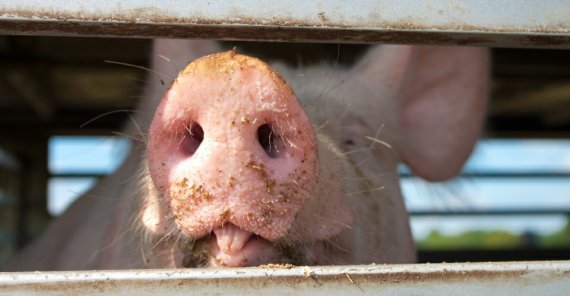The use of antibiotics in piggeries has decreased substantially in ten years’ time, but this has not yet led to a decrease of antibiotic resistant bacteria in the sector, ascertain the researchers. In 2005, the Methicillin-resistant Staphylococcus aureus (MRSA) bacterium was found in 39% of slaughter pigs and in 81% of the slaughterhouses, as shown by previous research conducted by RIVM researcher Cindy Diederikx. Ten years later, she observed MRSA in 83 percent of the examined slaughter pigs, with all slaughterhouses having by now been contaminated by the bacterium. She reported this last month in the Journal of Antimicrobial Chemotherapy.
Diederikx investigated 558 pigs from 56 slaughter batches in seven different slaughterhouses. She repeated the detection method that she used in 2005, but additionally also used a second, more accurate method. Using the latter method, she found 99 percent of the pigs to contain MRSA bacteria in their nose.
The researchers warn that the personnel in slaughterhouses can still be infected by the bacterium. Many common antibiotics have no effect on MRSA infections. In the past years, the use of antibiotics has decreased by 58 percent in livestock farming. The use varies greatly between farmers.
Related article (in Dutch):
ESBL verspreidt zich snel door een koppel vleeskuikens

